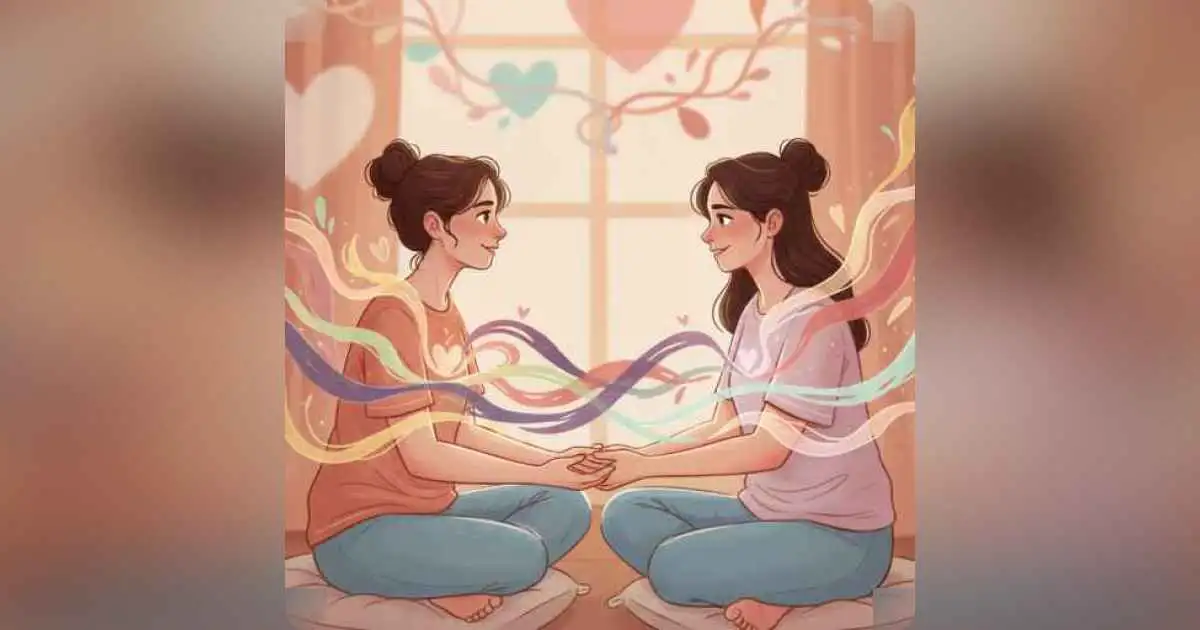The Pattern You Keep Seeing And Why It’s So Damn Sticky
You finally meet someone who’s kind, present, Emotionally available. They show up. They listen. They’re consistent. And instead of feeling safe, you start to itch. You nitpick. You pull away. You tell yourself something feels “off.” Maybe they’re too nice. Maybe the spark is gone. Maybe you’re just not ready.
Sound familiar?
This is how many of us sabotage good Relationships not in loud, dramatic ways, but in subtle, slow-drip behaviors: ghosting after intimacy, obsessing over flaws, creating distance, or convincing ourselves we’re better off alone.
It’s a pattern that masquerades as intuition but is often just fear wearing a clever disguise.
And here’s the kicker: we don’t just do this once. We repeat it. Again and again. Like sleepwalking back into a fire we promised ourselves we’d never touch again.
So if you’re asking yourself, “Why do I keep ruining healthy Relationships?” you’re not broken. You’re not crazy. But you are likely stuck in a deeper loop than you realize.
Myth: “I Just Haven’t Found the Right Person Yet”
Let’s call this out right now. One of the most comforting lies we tell ourselves is that the pattern will magically end when we meet The One.
But if you’re constantly pulling away from good people or chasing after the ones who hurt you the problem isn’t about who you’re dating. It’s about how you’re relating.
Saying you haven’t found the right person yet might sound self-aware, but it often hides the truth: you wouldn’t know what to do with the right person even if they knocked on your door with flowers, a therapist’s number, and a signed letter of emotional maturity.
The “wrong people” aren’t the problem. The wrong wiring is.
The Real Reason We Sabotage Good relationships
You might think it’s bad luck, or poor judgment, or just your taste in Partners. But underneath the surface, sabotage is usually a form of self-protection rooted in early emotional conditioning.
Here’s what’s often driving it:
1. Unconscious Familiarity
Our nervous systems are drawn to what feels familiar not what’s good for us. If you grew up in chaos, inconsistency, or emotional neglect, calm and steady can feel boring or even threatening. Your brain doesn’t say, “Ah, peace.” It says, “Something’s off where’s the drama?”
2. Core Beliefs About Worth
Deep down, many of us carry a belief that we’re unlovable, too much, or fundamentally flawed. So when someone treats us with kindness, we either don’t trust it or we feel the need to test it. “If they really knew me, they wouldn’t stay,” we think. So we push them away before they get the chance.
3. Fear of intimacy, Not Rejection
It’s easy to say we’re afraid of being abandoned. But more often, we’re afraid of being seen. Intimacy means vulnerability. Vulnerability means exposure. And for people who’ve been hurt before, closeness can feel more dangerous than distance.
4. Sabotage as Control
Ending things on your terms gives you a false sense of power. If you’re the one who leaves, at least you’re not left. But what you’re really doing is protecting yourself from the vulnerability of needing someone who could disappoint you.
This isn’t about being weak. It’s about old wounds, survival instincts, and habits that no longer serve you.
How to Stop Repeating Relationship Patterns: Mindset Shifts That Actually Work
Breaking the cycle doesn’t start with finding the “right” partner. It starts with becoming the right version of yourself one who isn’t ruled by fear disguised as logic.
Here’s how to start.
1. Stop Mistaking Chemistry for Compatibility
We often equate intensity with intimacy. That spark you feel with emotionally unavailable people? That’s your trauma trying to heal itself. It’s familiar chaos. Learn to recognize that intense pull as a red flag, not a green light.
Try this: The next time you feel that electric, all-consuming attraction, pause. Ask yourself: Does this feel exciting or anxiety-inducing? If it’s the latter, tread carefully.
2. Normalize Boredom in the Beginning
Healthy love often feels slow, steady, even dull at first because it’s not designed to trigger your nervous system. Give it time. Let the relationship unfold. Don’t run just because your body isn’t on high alert.
Reframe it: Boring can be safe. Safe can be sexy once your nervous system learns it doesn’t have to be in survival mode.
3. Practice Discomfort Without Panic
Being seen, loved, and chosen will feel uncomfortable if you're not used to it. That discomfort doesn’t mean the relationship is wrong. It means you’re growing.
Mantra: It’s okay to feel awkward. I can hold the discomfort without fleeing.
4. Notice the Moment You Want to Run Then Stay Curious
The urge to pull away is a cue, not a command. When you catch yourself about to ghost, pick a fight, or nitpick your partner, pause.
Ask: What am I afraid of right now? What would it mean to stay instead of sabotage?
Name the fear. Don’t act on it. Let the moment pass like a wave.
5. Heal Outside the Relationship
Your partner can’t fix wounds they didn’t cause. Therapy, journaling, trauma-informed coaching these are places to unravel your patterns. Don’t expect your relationship to carry the full weight of your healing.
Reminder: You don’t have to be “fully healed” to love or be loved. But you do need to take responsibility for your side of the street.
6. Redefine What Love Feels Like
Love isn’t a rollercoaster. It’s not obsession, anxiety, or waiting by the phone. It’s consistency. It’s showing up. It’s being known and still chosen.
That might not feel like fireworks but it lasts longer than anything that burns too hot, too fast.
Responsibility Without Blame: You’re Not Broken But You Are in Charge
If you’ve sabotaged good relationships, it doesn’t mean you’re damaged. It means you’ve learned to protect yourself in brilliant, if misguided, ways. Your inner child did what they had to do. But now? Now you have a choice.
You can stop replaying old scripts. You can choose presence over panic. You can rewrite the story.
Start by noticing. Then by staying. Then by showing up even when it’s scary.
You don’t have to be fearless. You just have to be willing.
And when you are? That’s when the pattern breaks. That’s when the good stuff begins not because someone saves you, but because you stop running from the love you actually deserve.
Summary:
If you’ve ever wondered “why do I sabotage good relationships?” or keep asking “how to stop repeating relationship patterns,” the answer isn’t about finding someone new it’s about facing the emotional wiring that keeps pulling you back. Learn the hidden roots of self-sabotage, how to break the cycle, and finally choose relationships that feel good and last.




